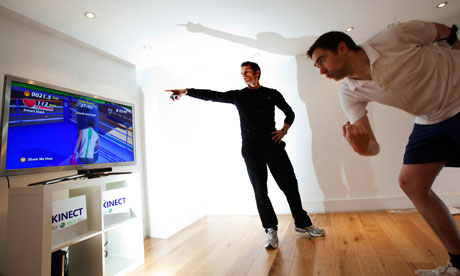
Apple has refused to comment on rumours that could buy Primesense, the Israel-based company which developed the technology used in Microsoft's Kinect gesture sensor.
Suggestions that the iPhone maker might acquire a company whose best-known product is widely used with games consoles in the living room sparked immediate interest, because Apple is widely anticipated to be preparing a broader assault on the living room with its Apple TV set-top box to counter the growing use of the Xbox and Playstation consoles as proxies for watching TV.
The report on the Israeli financial daily Calcalist ( translation) suggested that Apple would seek to purchase the company for $280m - a low price compared to $85m that it has received in venture funding.
Primesense did not respond to calls from the Guardian. But told Techcrunch reported a source there saying that the suggestions of a purchase were "journalist[ic] delusion based on unverified and twisted hints... $280m? Come on! We're worth ten times that." The source called the report of an impending buyout "BS".
Calcalist reported that a "delegation" of "senior engineering managers" from Apple had visited Primesense earlier in July and spent an entire day there.
Primesense has developed sensor systems which are able to locate and identify individuals using a combination of infrared and motion-sensing systems; in the Kinect, it can uniquely identify individuals and detect when they are making gestures, which can be used to control games or TV playback.
Israel has produced a number of technology companies which have been snapped up by Silicon Valley giants, most recently including travel app Waze, bought for a reported $1.3bn by Google in June.
Apple already has three development centres in Israel. At the end of 2011 it bought Anobit, which provides systems to improve solid-state storage performance, for a reported $390m.
Besides Anobit, based in Herzilya, Apple owns facilities in Haifa working on elements of its A series processors, used in the iPhone and iPad, and another centre in Ra'anana with staff formerly at Texas Instruments.
No comments:
Post a Comment